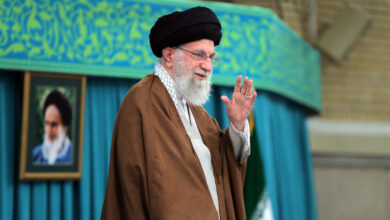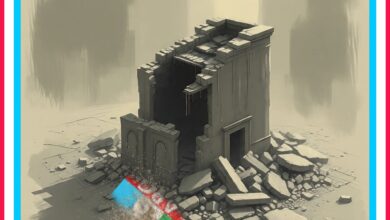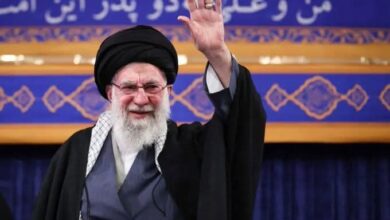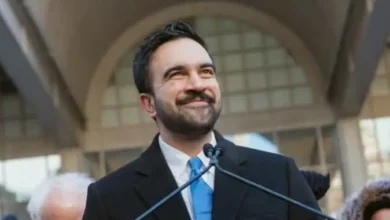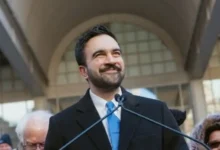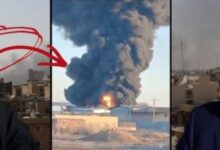EL-RUFAI AND THE UNQUALIFIED TEACHERS: The courage to save a generation

By HON. ABUBAKAR MG
When I look back at the outcry against the Kaduna education reform, I see the same pattern of resistance that has crippled Nigeria’s progress for decades, the defense of mediocrity, the worship of comfort, and the hatred for accountability. But change has never been easy. Every society that rose from failure did so because someone dared to say enough. In Kaduna, El-Rufai said it.
I have listened long enough to the endless criticisms directed at Malam Nasir El-Rufai over his reform of Kaduna’s educational system especially the decision to dismiss thousands of unqualified teachers. Each time I hear such arguments, I cannot help but ask, have these critics ever paused to examine what truly destroyed education in Kaduna in the first place? Have they looked into the decades of political patronage, corruption, and decay that turned classrooms into daycare centers for adults with no passion for learning or teaching?
I believe that anyone who criticizes El-Rufai for cleaning up this rot is either intellectually dishonest or emotionally disconnected from the realities of our educational tragedy. In 2017, when the Kaduna State Government tested its primary school teachers, over 75% failed basic literacy and numeracy tests meant for the pupils they were teaching. Think about that for a moment men and women entrusted with shaping the future of children could not even pass the very exams their pupils were expected to pass. And yet, some people wanted this embarrassment to continue under the excuse of “compassion.” But compassion without competence is cruelty.
In 2017, when Malam Nasir El-Rufai announced his plan to reform education in Kaduna State, he conducted a competency test for over 40,000 teachers. The result was both shocking and heartbreaking more than 22,000 of them failed the test. Many could not read a simple sentence, some could not even read a short note correctly, while others could not write their own names. Let us tell ourselves the truth, how could education in Kaduna have progressed under such conditions, where teachers entrusted with nurturing our children could not even construct a basic sentence? That was one of the reasons learning almost disappeared from many Kaduna schools at that time. Instead of focusing on their studies, many students had turned to violence and gangsterism, fighting with knives and attacking one another within school premises. I remember vividly a government school close to me then, where such incidents were daily occurrences. Everyone knew about Government Secondary School Badarawa, popularly called “Day Bola,” and how it was engulfed in frequent student clashes. All this happened largely because of the absence of competent teachers and proper supervision. So, what was El-Rufai’s crime in deciding to fix this broken system so our children could receive quality education? What wrong did he commit by removing those teachers who contributed nothing to the progress of the state except collecting salaries every month for doing nothing meaningful? We must understand that rebuilding a decayed system, especially in a nation like Nigeria cannot be achieved through softness or sentiment. El-Rufai’s bold step in the education sector was one of the most significant reforms in Kaduna’s history, and every genuine lover of progress should commend him, not condemn him.
As a student of governance and reform, I have studied global education systems and the difficult decisions that saved them. In Global Education Reform by Frank Adamson and Linda Darling Hammond, the authors emphasize that no country has ever transformed its educational outcomes without first confronting the question of teacher quality. El-Rufai’s action perfectly fits this global standard not as a political vendetta, but as an act of moral and institutional courage. He did what visionary leaders do, he faced resistance, but he refused to retreat.
Many of those crying today over “mass sackings” forget that for decades, education in Kaduna was politicized. I know of times, between 2007 and 2011 when politicians handed out teaching jobs like campaign souvenirs. In some families, every relative had an offer letter, even if they could not spell their own names. I personally witnessed cases where people who could not write in Hausa, let alone English, were employed as teachers simply because someone owed them a political favour. That was how we destroyed education in this country, by replacing merit with mediocrity. So when El-Rufai came and decided to break this rotten chain, he was not attacking teachers, he was saving a generation.
In Tinkering Toward Utopia by David Tyack and Larry Cuban, the authors explain that “genuine reform often meets fierce resistance from those who benefit from the old order”. The Kaduna reform saga is a textbook example. Those who were exposed by the system suddenly became the loudest voices of moral outrage. But this is not unique to Kaduna, it is the fate of every reformer who dares to challenge complacency. Leadership is not about pleasing everyone, it is about doing what is right, even when it hurts.
I find it deeply disturbing that some people prefer to protect failed teachers rather than protect children’s futures. What exactly do they want us to do? Continue allowing people who cannot read or write to teach? What will such teachers impart to the next generation ignorance or progress? We cannot keep producing half baked students and expect Nigeria to compete in a knowledge driven world. Education is too sacred to be left in the hands of political appointees disguised as teachers.
El-Rufai understood something fundamental that education is not employment, it is nation building. When he said “every teacher must pass a competency test” it was not humiliation, it was a mirror held up to our collective conscience. In A Chance to Make History, Wendy Kopp recounts how educational leaders across the world faced similar backlash when they demanded accountability from teachers. They were called harsh, arrogant, and insensitive until their reforms began to yield results. History has always vindicated reformers, not reactionaries.
Those opposing El-Rufai’s actions argue that the state should have trained rather than sacked the unqualified teachers. But how do you train people who lack the basic foundation to absorb training? Education reform is not about sentiment, it is about standards. When a teacher cannot read, no amount of workshop or seminar will fix that overnight. Sometimes, the most compassionate act is to start afresh to rebuild the system from its roots, not to patch a collapsing structure.
As Fernando Reimers writes in Educating Students to Improve the World, education is the foundation of societal transformation it must produce citizens who can think, innovate, and lead. You cannot achieve that with teachers who see teaching as a political reward rather than a sacred duty. El-Rufai’s decision was not about punishment, it was about restoration the restoration of dignity, discipline, and excellence in the classroom.
I must also emphasize that those who politicized this reform failed to understand its moral significance. The same politicians who distributed fake employment letters in the past are now pretending to care about the fate of teachers. Where was their conscience when unqualified teachers were destroying the dreams of our children? Where was their outrage when schools became empty shells of learning? Today, they attack El-Rufai not because he did wrong, but because he exposed their failures.
It’s better to be honest with ourselves Nigeria cannot develop if we continue to protect incompetence. The teacher who cannot spell “education” has no business in a classroom. The headmaster who cannot manage a school cannot shape leaders. The system needed cleansing, and El-Rufai had the courage to do what many before him were too afraid to attempt. He did not choose the easy path; he chose the necessary one.
I have always believed that history will judge leaders not by how popular they were, but by how honest they were in confronting decay. El-Rufai confronted decay head on. He risked political capital, personal comfort, and popularity all for the sake of truth. In a country where politicians are obsessed with survival, he chose sacrifice. That is not arrogance, that is statesmanship.
When I look back at the outcry against the Kaduna education reform, I see the same pattern of resistance that has crippled Nigeria’s progress for decades, the defense of mediocrity, the worship of comfort, and the hatred for accountability. But change has never been easy. Every society that rose from failure did so because someone dared to say enough. In Kaduna, El-Rufai said it.
If we truly wants to progress, then we must learn from what El-Rufai did. Reform is not a crime, it is an act of patriotism. The courage to correct a system gone wrong is the highest form of leadership. And for that, history, not politics will vindicate Malam Nasir El-Rufai.
Hon. Abubakar MG
18th October 2025


